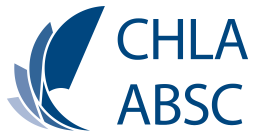About the Leadership Institute
The Leadership Institute is a program designed for health science librarians who want to develop strategic approaches to mobilize knowledge and enable informed decision-making at senior levels within their organizations.
One of the biggest challenges facing healthcare practitioners and senior managers is how to ensure that data is curated, and that decisions are based on evidence and explicit knowledge.
In this environment, health librarians are uniquely poised for leadership roles.
The Steering Committee of the Leadership Institute is working in collaboration with Rebecca Jones of Dysart & Jones Associates to deliver a multi-faceted curriculum to address these issues and support participants to develop their leader skills.
Structure
The program is structured in 3 parts, with 4 components:
1 . The initial intensive
This 1.5 day retreat, June 2-4, 2019, introduces the core curriculum, builds solid group dynamics with other participants, instructors and mentors, and begins to explore current and emerging challenges facing information leaders in the Canadian health sector.
2 . Ongoing throughout the year
Virtual Learning & Discussion Sessions
8 online meetings (60- 90 minutes) scheduled through the remainder of 2019 and January – June 2020.
These online meetings include presentations by leading practitioners in health or information services to assist participants to apply the leadership skills they have learned to specific workplace scenarios, and will be followed by group discussions and exercises.
Mentoring
Each participant is matched with a mentor. Mentors meet either online or in person with their mentee 6- 8 times over the course of the year. Participants may choose to discuss the topics covered in the sessions or any or all of the following with their mentors:
- Current career challenges
- Their projects
- Any other professional questions or concerns
3 . Capstone event
This full day retreat, held the day before the 2020 CHLA-ABSC Conference in Niagara Falls, ON to focus on participants’presentations of their projects and receive structured, constructive feedback. Plus – this is the graduation event!
Curriculum
The Leadership Institute will draw on a variety of well-established frameworks for leadership, including:
- The LEADS framework promoted by the Canadian College of Health Leaders
- The Five Mind Sets for Management developed by Henry Mintzberg, renowned management researcher and professor at McGill and Harvard Universities
The Institute’s curriculum and instructors will support participants to develop their capacity to understand themselves, the organizations in which they work, and the broader context in which health care policy is developed and delivered.
Specifically, the Leadership Institute will build the capacity of participants to develop an approach to leadership that integrates the following five components:
1 . Understanding of self
How perceptions, beliefs and tendencies affect behaviour and workplace performance, and effective strategies for leveraging strengths in light of these factors.
2 . Context
How to think strategically about the current and emerging environments in which organizations operate (both parent organization and departments); how to develop action plans to continuously monitor and respond to external changes that have impact on the internal operations of organizations.
3 . Organization
Analysis of functions required for information services in organizations in the health sector, with particular attention to the critical success factors of the workplace and how to align library services to these success factors.
Participants will become equipped to articulate and use their organization’s values to enhance engagement with the library.
4 . Relationships
How to develop and implement strategies to enable multi-directional influence in organizations; this will be enhanced by experiential learning through virtual and face-to-face collaboration over the course of the Institute.
5 . Change
Participants will be guided to embrace change as constant and also appreciate that change and continuity go hand-in-hand. Participants will be encouraged to regularly monitor their environment, shape strategies responsive to evolving trends, and develop action plans to facilitate the active contribution of others in envisioning and implementing organizational and systematic strategic changes. They will understand how to better position themselves to help lead change in their organizations.
